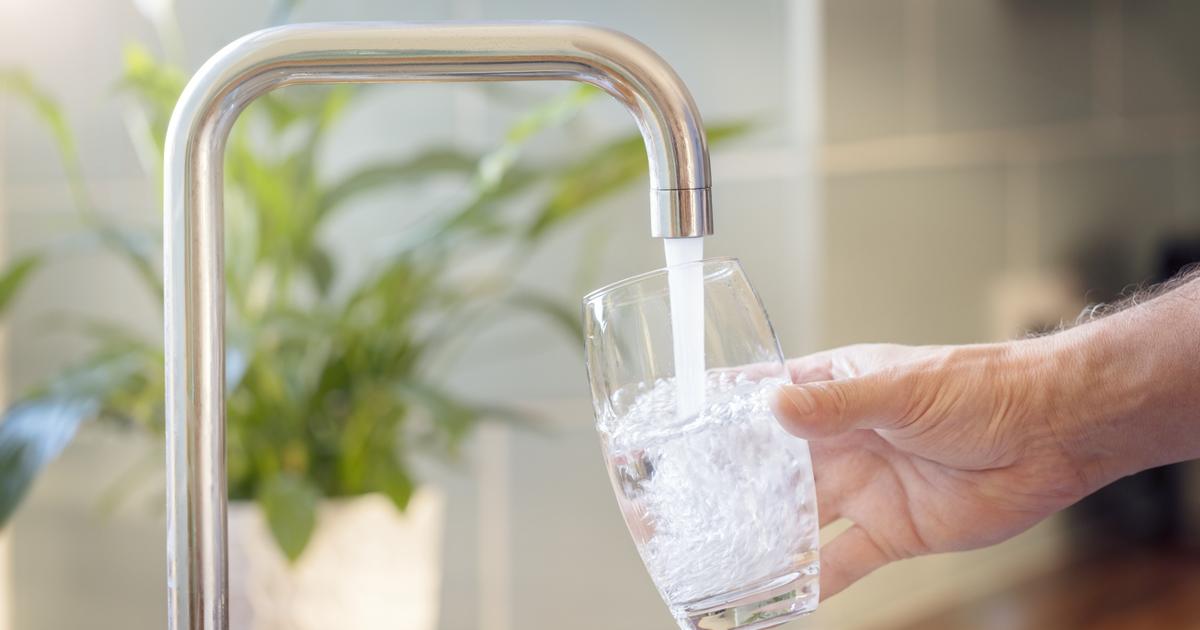Damascus-SANA
The People's Assembly, in its fourth session of the fifth regular session of the third legislative session, held today under the chairmanship of Hamouda Sabbagh, Speaker of the Assembly, discussed the performance of the Ministry of Water Resources and issues related to its work.
And the Minister of Water Resources, Dr. Tammam Raad, stated in a presentation on the ministry’s work that he presented to the council that a memorandum has been submitted containing the ministry’s needs for human resources, which are set at 5,500 jobs that were noticed in the recently announced central competition, and that the water institutions of Daraa, Quneitra, Sweida and Deir ez-Zor are preparing to provide their services through Electronic payment system soon after the water institutions of Damascus, Tartous, Lattakia, Hama, Aleppo and Homs.
Minister Raad indicated that a number of governorates exceeded the annual rate of rain water, but the climatic changes negatively affected the storage rates of dams, where the highest percentage was in the Orontes Basin last year, 65 percent, the Coast Basin 69 percent, and the total of the six internal basins 54 percent, with the exception of the Euphrates Dam. In the Orontes Basin, it is 30 percent and the Sahel Basin is 45 percent, while the storage rates in all basins combined are only 30 percent.
Minister Raad pointed out that the water scarcity worsened after the Turkish occupation reduced the imports of the Euphrates River to the limits of 50 percent, which negatively affected Syria and Iraq’s share of water, as well as the “Qasd” militia pumping water from the dam to generate electricity without being bound by the dams’ operating programs.
With regard to the investment plan, Raad indicated that the ministry implemented 105 percent of the plan last year, after additional funds were allocated from the government for the completion of all work.
The Minister of Water Resources stated that more than 70,000 hectares were introduced last year to the irrigated areas after supplementing them with an irrigation network, and this year another 25 thousand hectares of liberated areas will be introduced, and 7 sewage treatment plants have been completed after completing the projects that have been started at a total cost 16 billion pounds, and work is currently underway to complete the implementation of 22 stations, dozens of estuaries and sewage networks.
He pointed out that 411 water wells were drilled, equipped and rehabilitated, 573 km of water network pipes were replaced and renovated, and electric generating sets of multiple capacities were maintained and secured, 392 pumps were supplied and maintained, and 41 pumping stations and wells were secured from rationing, indicating that 94 wells were converted to solar energy and that The total expenditure on the drinking water sector last year amounted to 160 billion Syrian pounds.
In their interventions, a number of council members called for exempting water pumping stations and wells from electrical rationing or providing them with solar panels, removing encroachments on the course of the Barada River that cause river water pollution, securing renewable energy sources for water projects in the liberated areas, organizing a field visit to Al-Hasakah Governorate, and examining the difficulties of supplying them. drinking water and finding solutions to secure water for it.
Some members stressed the necessity of coordinating with the Ministry of Electricity in order to secure the electric current during the times of pumping water to many residential areas, in addition to rehabilitating channels and irrigation networks, isolating the Orontes River course and obligating companies and laboratories that cause its pollution to remove the causes of pollution, rehabilitate the stopped water stations, and find a solution to the recurrent water problem in the governorate. Lattakia before the summer season, achieving equitable distribution and the need to search for new water sources in the countryside of Raqqa and to settle the conditions of the wells that were drilled during the crisis.
The members pointed to the importance of developing laws and legislation related to the water situation, granting licenses to dig wells in water-poor areas, quitting work in the suspended sewage stations, solving the problem of polluted water in Ain al-Krum in Hama countryside, and supplying the institutions affiliated with the Ministry with labor, wondering about the completion rate of the Sukar water project in Homs and the remaining time to the end of its implementation.
A number of members demanded the repair of water and sewage networks, the restoration and maintenance of irrigation channels damaged by terrorism in the governorate of Daraa, Homs, Aleppo and its liberated countryside, isolating the Quweiq River, and rehabilitating and activating the General Company for Sanitation in Deir ez-Zor. water.
In response to the interventions between Minister Raad, a study was conducted for the existing wells in order to supply them with solar energy, and 100 of them will be supplied with energy within the ministry’s plan for this year, knowing that the number of wells will be 2,000 and the supply of energy will be according to priority, and a draft law has been prepared to amend some articles of the law Water Legislation No. 31 of 2002.
Minister Raad pointed out that the ministry has no reservations about creating a water control and that it is ready to do so in the event of a necessity in an area. A number of water pumping stations have been exempted from electrical rationing, and new stations will be exempted this year in coordination with the Ministry of Electricity, and there are participations from the local community to dig Water wells and securing the necessary equipment for them, indicating that work is underway to construct a filtration station in the Tishreen 16 Dam with a total value of 170 billion pounds, and it will be put into service this year. Canals, irrigation networks and pumping stations have been maintained and are ready for the next irrigation season.
As for the unlicensed wells, work is underway to count them and prepare studies and reports to take the necessary measures in this regard to protect the water sources, according to Minister Raad, noting that the implementation of the project to remove pollution from the Barada River at a value of 4 billion pounds will be completed and the project to irrigate the southern countryside of Aleppo and rehabilitate Al-Basel station to secure Drinking water in Deir ez-Zor, securing 100,000 domestic water meters, and digging 65 wells to secure water for thirsty communities.
The session, which was attended by Minister of State for People's Assembly Affairs Abdullah Abdullah, was adjourned to 11:00 p.m. tomorrow, Thursday.
Follow Sana's news on Telegram https://t.me/SyrianArabNewsAgency















